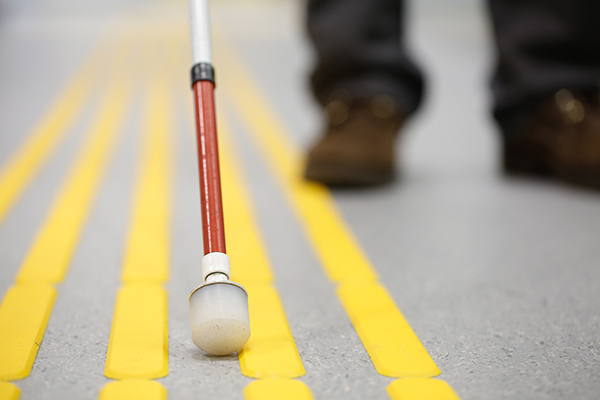Latest News Archive
Please select Category, Year, and then Month to display items
20 December 2021
|
Story Igno van Niekerk
|
Photo Igno van Niekerk
![]() Dr Samantha Potgieter, Senior Lecturer in the Department of Internal Medicine and Dr Nicholas Pearce, Senior Lecturer in the Department of Surgery comment on their team members’ commitment and determination during the pandemic.
Dr Samantha Potgieter, Senior Lecturer in the Department of Internal Medicine and Dr Nicholas Pearce, Senior Lecturer in the Department of Surgery comment on their team members’ commitment and determination during the pandemic.
On the forefront of the battle against the COVID-19 pandemic, two UFS doctors are leading a team of inspired healthcare workers in a superhuman effort to make a positive difference.
With the pandemic in its second year and the recurring challenges of new waves and strains consistently in the news, one would expect the doctors to be tired. However, quite the opposite is true. Upon entering the office where Dr Samantha Potgieter, Senior Lecturer in the Department of Internal Medicine and Dr Nicholas Pearce, Senior Lecturer in the Department of Surgery are in a meeting with colleagues, the debate is vibrant; an energetic sense of mission.
Miraculously succeeded
My brief is to collect stories and experiences they’ve had over the past 18 months at the Tumelo ward for general and high-care patients, where the team has miraculously succeeded in not running out of oxygen or ventilators, despite handling high volumes of patients from the Free State and Northern Cape. “We saw those pictures of piled-up bodies in Italy. We were committed to avoiding that at all costs. And we did.”
Success stories? First mentioned are their team members’ commitment and determination. The team had to stand in when families could not support dying patients. “They did not die alone. Our team was there.”
“Really sad and frustrating are the deaths that could have been prevented. Unvaccinated patients. They arrive ill, wanting to know if they can get it. Too late...” – Dr Nicholas Pearce
Then came hope
Sad stories? The past year has had its share of sad stories. “Someone comes in during the morning, needs oxygen, in the afternoon they are in ICU, then ventilator – and then they die. We’ve never faced anything like this before.”
Then came hope. Vaccines. Dr Pearce is in charge of the vaccination site at Universitas Hospital. “Really sad and frustrating are the deaths that could have been prevented. Unvaccinated patients. They arrive ill, wanting to know if they can get it. Too late ...” He opens his cell phone – shares the stats. “We can handle 2 000 vaccinations a day. At the moment about 250 comes in.” He shakes his head.
“We can beat this virus, but we need to stand together ...”
Tactile paving assists visually impaired
2017-10-28

Tactile paving is being installed at pedestrian crossings to assist
visually-impaired persons at the UFS.
Photo: Supplied
Crossing roads and accessing buildings has always been a challenge for people with visual impairments. They had to rely on peripheral sounds, such as car brakes and cues. However, after the installation of tactile paving – paving with special textures assisting the visually impaired to feel the difference between walking around on campus and crossing the road, this will no longer be a problem at the University of the Free State (UFS).
This is one of several developments that University Estates’ Department of Facilities Planning has in the pipeline for 2017 in order to ensure that the university attains its key component in providing a high-quality student experience.
Maureen Khati, Assistant Director of Project Management: Facilities Planning, says, “We saw the need to install these paving blocks in strategic spaces, as identified by the Center for Universal Access and Disability Support (CUADS).” She says these blocks will make it easier for people with visual impairments.
Special features designed to aid visually-impaired persons
These installations have special features that will assist those students and employees with limited vision or blindness to navigate through pedestrian crossings and the different campus buildings. The university chose a unique design of tactile paving that focuses on warning and directing those with visual impairments.
UFS eager to improve accessibility and mobility
The university, and all the stakeholders involved in this initiative, are delighted to be embarking on this project and are looking forward to its successful execution. To improve accessibility and mobility, more accessible entrances and exits will be built, effective signage will be installed inside and outside buildings, but the most important aspect is that dedicated seating space will be made available in lecture rooms for special-needs students.
Khati says, “More focus has been put on installing ramps in all buildings to make them more accessible for people with disabilities, as well as other needs required to enhance accessibility at the UFS.”
For the UFS, this initiative is one of many to come, as extensive research is being done and priorities are implemented accordingly.